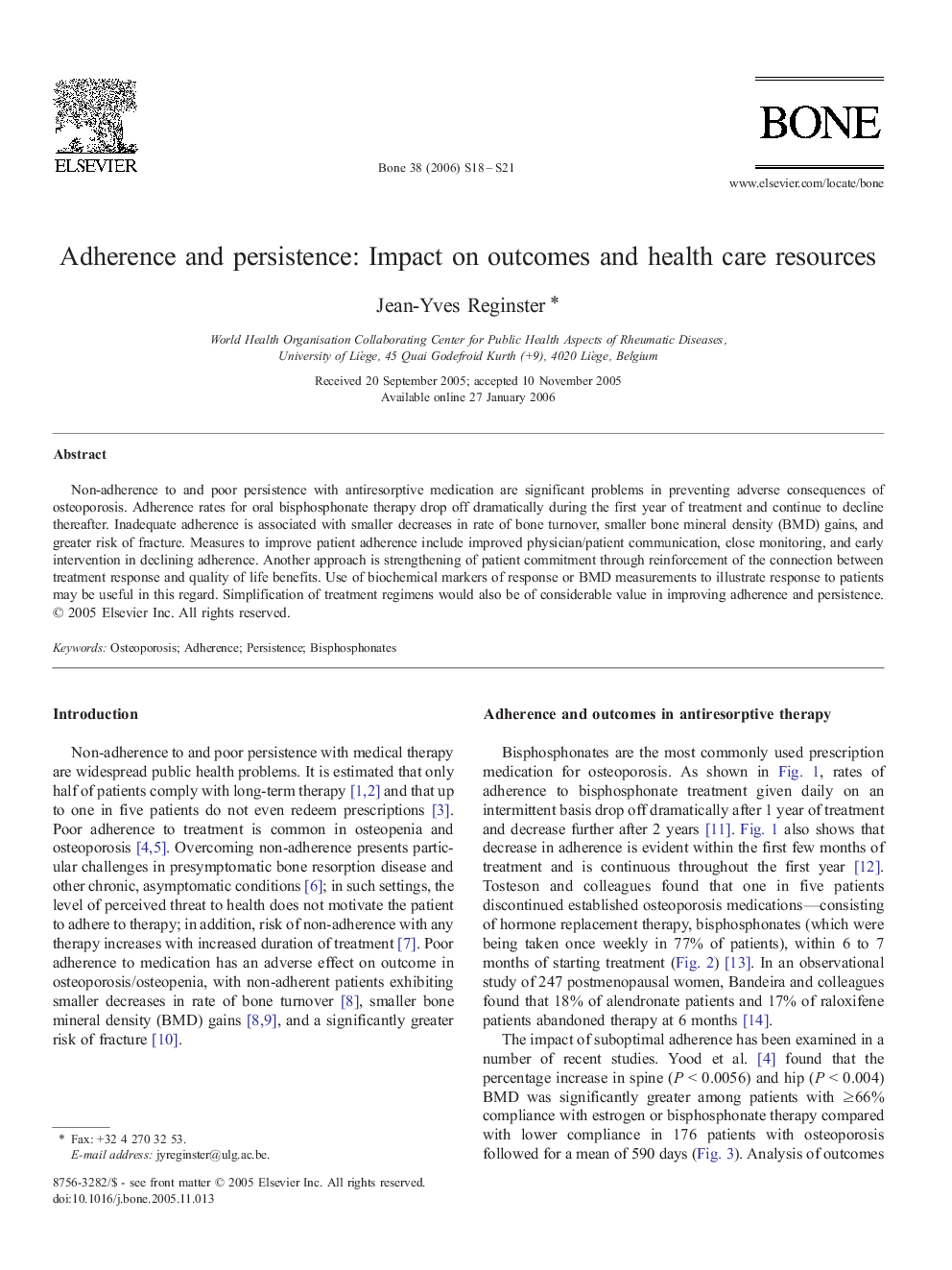| Article ID | Journal | Published Year | Pages | File Type |
|---|---|---|---|---|
| 2783002 | Bone | 2006 | 4 Pages |
Non-adherence to and poor persistence with antiresorptive medication are significant problems in preventing adverse consequences of osteoporosis. Adherence rates for oral bisphosphonate therapy drop off dramatically during the first year of treatment and continue to decline thereafter. Inadequate adherence is associated with smaller decreases in rate of bone turnover, smaller bone mineral density (BMD) gains, and greater risk of fracture. Measures to improve patient adherence include improved physician/patient communication, close monitoring, and early intervention in declining adherence. Another approach is strengthening of patient commitment through reinforcement of the connection between treatment response and quality of life benefits. Use of biochemical markers of response or BMD measurements to illustrate response to patients may be useful in this regard. Simplification of treatment regimens would also be of considerable value in improving adherence and persistence.
